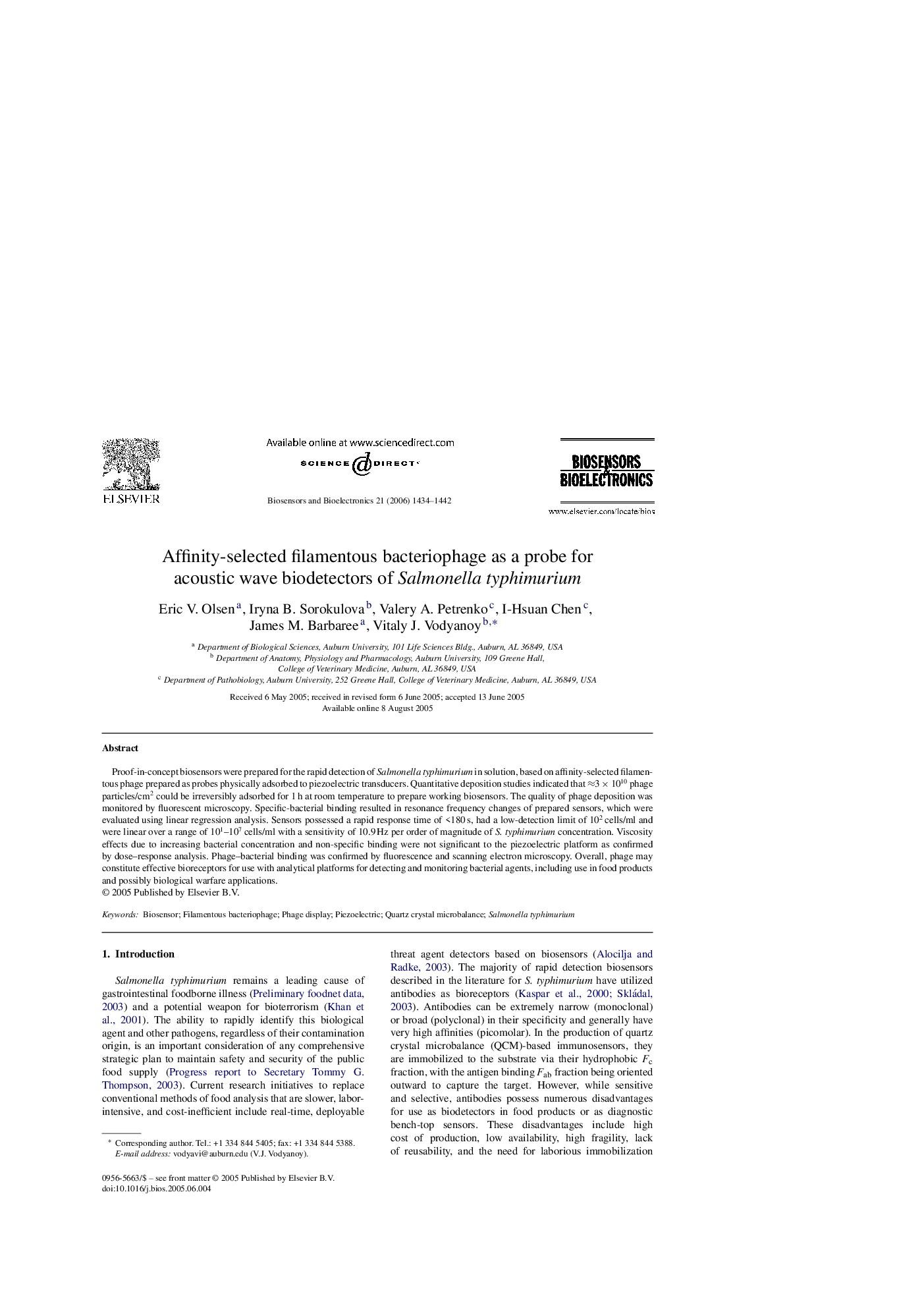| Article ID | Journal | Published Year | Pages | File Type |
|---|---|---|---|---|
| 870040 | Biosensors and Bioelectronics | 2006 | 9 Pages |
Proof-in-concept biosensors were prepared for the rapid detection of Salmonella typhimurium in solution, based on affinity-selected filamentous phage prepared as probes physically adsorbed to piezoelectric transducers. Quantitative deposition studies indicated that ≈3 × 1010 phage particles/cm2 could be irreversibly adsorbed for 1 h at room temperature to prepare working biosensors. The quality of phage deposition was monitored by fluorescent microscopy. Specific-bacterial binding resulted in resonance frequency changes of prepared sensors, which were evaluated using linear regression analysis. Sensors possessed a rapid response time of <180 s, had a low-detection limit of 102 cells/ml and were linear over a range of 101–107 cells/ml with a sensitivity of 10.9 Hz per order of magnitude of S. typhimurium concentration. Viscosity effects due to increasing bacterial concentration and non-specific binding were not significant to the piezoelectric platform as confirmed by dose–response analysis. Phage–bacterial binding was confirmed by fluorescence and scanning electron microscopy. Overall, phage may constitute effective bioreceptors for use with analytical platforms for detecting and monitoring bacterial agents, including use in food products and possibly biological warfare applications.
